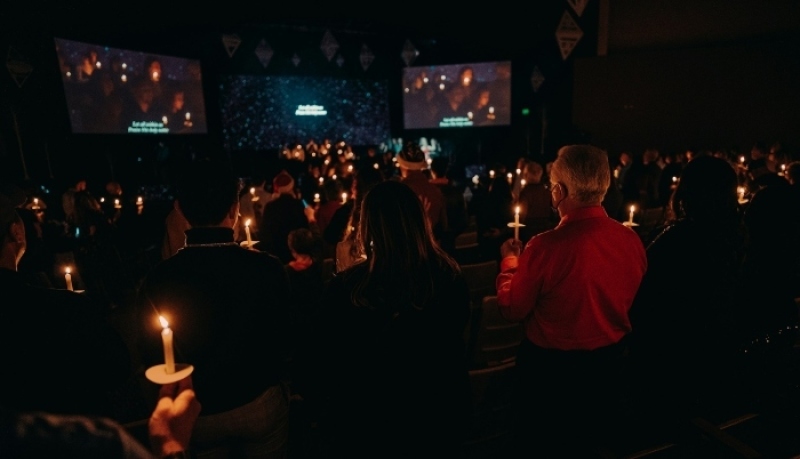
A study from Lifeway Research reveals that adults in the United States are divided on their plans to attend church this Christmas season.
The survey, which included over 1,200 Americans and was conducted from August 14 to 30, shows that nearly half (47%) typically attend church during the Christmas season, while 48% do not, and 5% remain unsure.
The study highlights the significant differences in attendance among various denominations. Protestants (57%), Catholics (56%), and individuals from other religious backgrounds (53%) are far more likely to attend church at Christmastime, compared to the religiously unaffiliated (21%). Among the religiously unaffiliated, 71% stated they usually do not attend church during Christmas.
One key factor influencing church attendance is how often individuals attend services. Among those who attend church more than once a week, 95% say they typically visit during Christmas. Additionally, approximately 72% of respondents with Evangelical beliefs report attending church during the holiday, while only 40% of those without such beliefs indicated the same.
Among the 47% of respondents who usually attend church at Christmas, the majority (60%) cite their motivation as a desire to “honor Jesus.”
Notably, those who attend church less frequently tend to cite “tradition” as their primary reason for attending during this time. Among those who rarely attend or only go on holidays, 22% and 27%, respectively, say they attend mainly to observe tradition, compared to just 10% of regular weekly attendees.
The findings suggest that many Americans who typically do not attend church at Christmas might be persuaded to go if invited. Among those who usually skip church, 56% said they would likely attend if someone they know invited them, including 17% who are very likely to go. However, 36% indicated they are unlikely to attend, with 24% stating they are very unlikely.
Scott McConnell, executive director of Lifeway Research, noted, “The very name 'Christmas' originates in the church's celebration of Jesus Christ's birth. In the mid-14th century, the words 'Christ's Mass' were first merged as a single term for this celebration.” He added, “While 9 in 10 Americans do something to celebrate Christmas, less than half typically attend church at Christmastime today.”
McConnell also pointed out that “more than one in eight Americans are convinced they would not attend a Christmas service if an acquaintance invited them.” Nonetheless, he highlighted that “the majority of Americans who do not typically attend church at Christmastime say they probably would if they were invited by someone they know.”
The effectiveness of invitations varies across religious groups, with Catholics (71%), Protestants (65%), and those of other faiths (58%) more likely to say they would attend if invited compared to the religiously unaffiliated (40%). Women (61%), Hispanics (72%), and individuals with Evangelical beliefs (69%) are also more likely to accept an invitation.
However, older Americans show less interest in attending church services, even if invited. Among those aged 65 and older, 48% said they were unlikely to attend a service regardless of whether they received an invitation.
The study's results align with a Gallup poll from March that indicated a decline in church attendance across most U.S. religious groups. Only 30% of Americans reported attending religious services every week (21%) or almost every week (9%), while 11% stated they attend about once a month. Meanwhile, 56% indicated they seldom (25%) or never (31%) attend religious services.


















